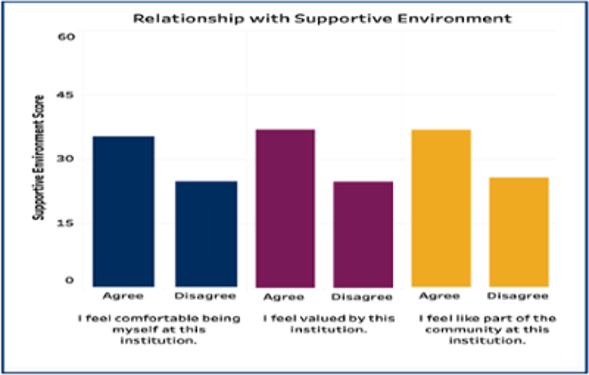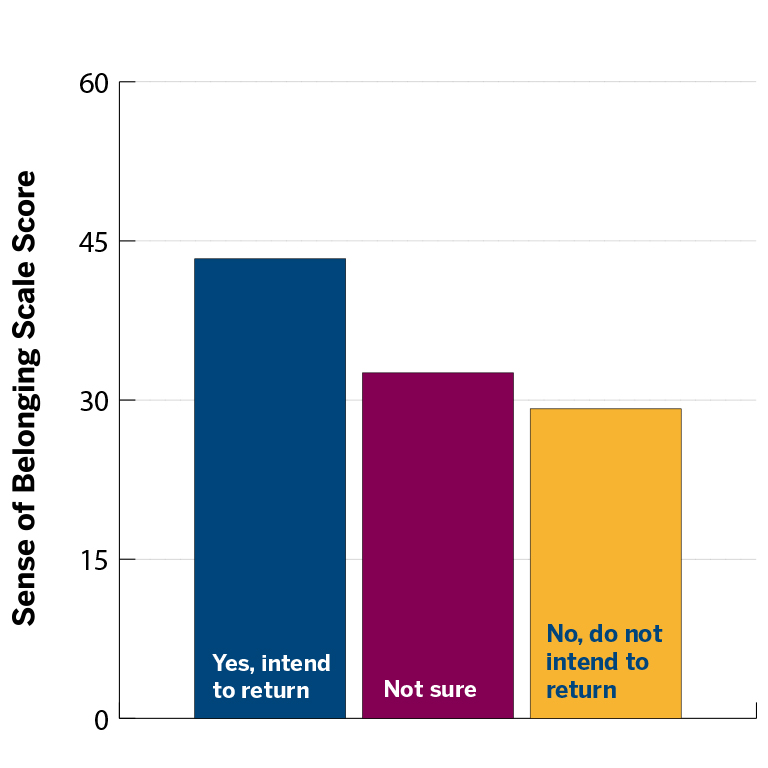For students to have a sense of belonging, they must feel like they can relate to others in the campus community (McMillan & Chavis, 1986; Strayhorn, 2019). This is an important concept because sense of belonging impacts student persistence (Hausmann et al., 2007). As Hausmann et al. showed, universities can develop interventions that improve students’ sense of belonging.
In the spring of 2020, 121,955 first-year students and 149,466 seniors from 521 bachelor’s degree-granting colleges and universities expressed degrees of agreement with statements related to their sense of belonging at their institution.













